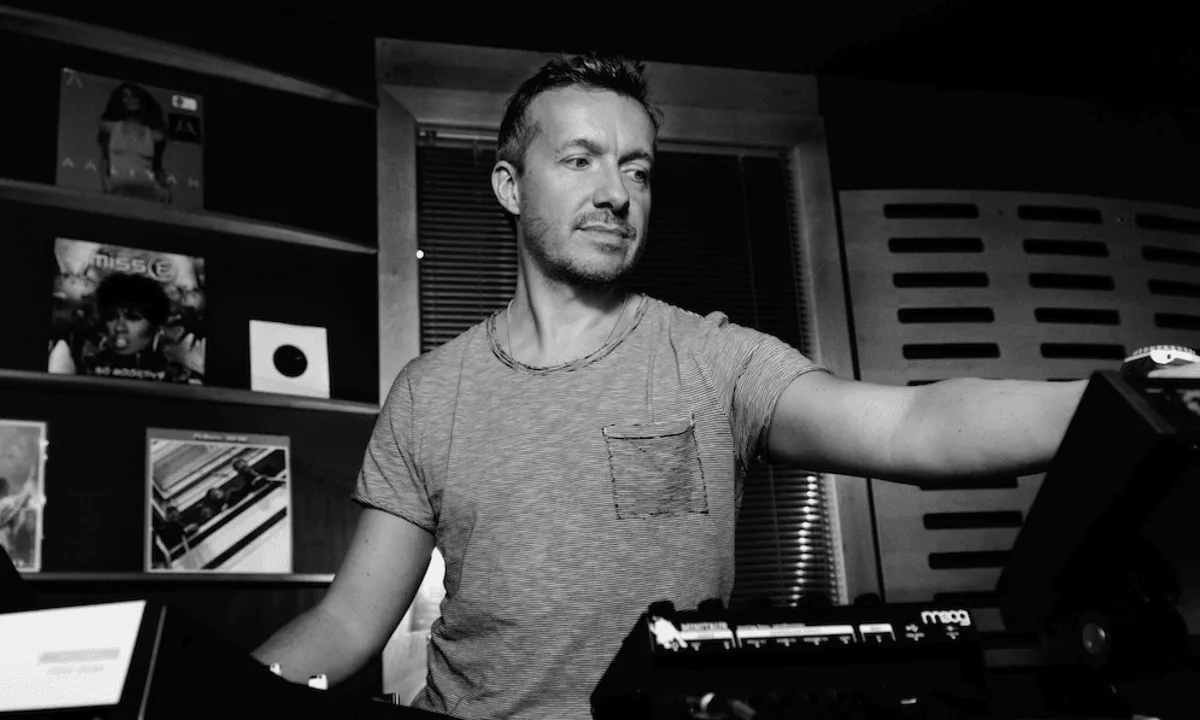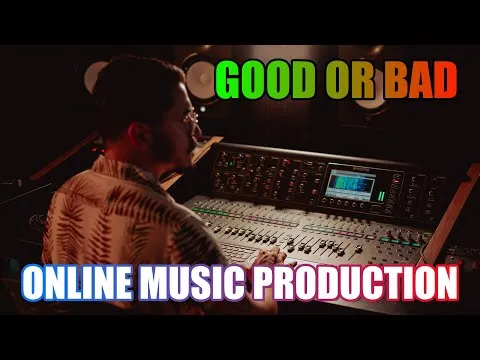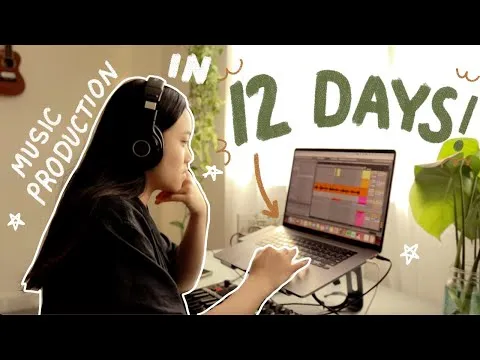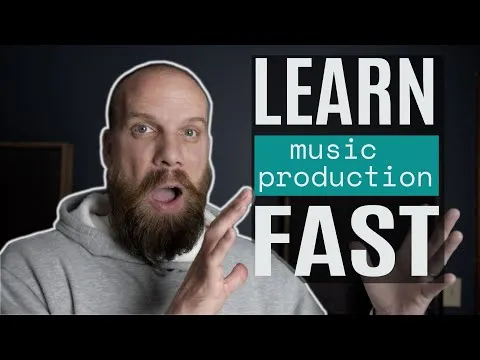
The Technology of Music Production 
Get a comprehensive overview of The Technology of Music Production ▼
ADVERTISEMENT
Course Feature
![]() Cost:
Cost:
Free
![]() Provider:
Provider:
Coursera
![]() Certificate:
Certificate:
Paid Certification
![]() Language:
Language:
English
![]() Start Date:
Start Date:
17th Jul, 2023
Course Overview
❗The content presented here is sourced directly from Coursera platform. For comprehensive course details, including enrollment information, simply click on the 'Go to class' link on our website.
Updated in [May 25th, 2023]
The Technology of Music Production is a course designed to provide students with an understanding of the music production process, including recording, editing, and mixing. Students will learn about the tools available to them to create contemporary music on their computer.
The course will begin with an introduction to the nature of sound and how it is perceived. Students will then learn about the components necessary to record audio into a computer, such as microphones, audio interfaces, and Digital Audio Workstations (DAWs).
The editing process will be explored in detail, with students learning about the tools available in a DAW, such as volume, pan, mute, solo, busses, inserts, sends, and submixes. Students will also learn about the various audio effects available, such as compression, equalization, and delay.
Finally, students will learn about the mixing process, including the use of hardware and software mixing boards. Students will also learn about the creative aspects of mixing, such as how to use the tools to create the desired sound.
At the end of the course, students will have a comprehensive understanding of the music production process and the tools available to them to create contemporary music on their computer. They will have the knowledge and skills necessary to express their creativity and share their music with the world.
[Applications]
After completing this course, students will have a better understanding of the tools and techniques used in music production. They will be able to use the knowledge gained to create contemporary music on their computer, from recording and editing to mixing and processing. Students will also have the skills to use the Digital Audio Workstation (DAW) to organize their musical projects, as well as the mixing board to combine and process sounds. With the right tools and knowledge, students will be able to express their creativity and share their music with the world.
[Career Paths]
1. Music Producer: Music producers are responsible for overseeing the entire music production process, from pre-production to post-production. They are responsible for selecting the right musicians, recording and editing the music, and mixing and mastering the final product. Music producers must have a deep understanding of the music production process and the tools available to them. As technology continues to evolve, music producers must stay up to date with the latest trends and tools in order to create the best possible product.
2. Audio Engineer: Audio engineers are responsible for the technical aspects of music production, such as setting up and operating recording equipment, mixing and mastering audio, and troubleshooting any technical issues that may arise. Audio engineers must have a deep understanding of sound and the tools available to them in order to create the best possible product. As technology continues to evolve, audio engineers must stay up to date with the latest trends and tools in order to create the best possible product.
3. Music Composer: Music composers are responsible for creating original music for a variety of media, such as film, television, video games, and commercials. Music composers must have a deep understanding of music theory and the tools available to them in order to create the best possible product. As technology continues to evolve, music composers must stay up to date with the latest trends and tools in order to create the best possible product.
4. Music Supervisor: Music supervisors are responsible for selecting the right music for a variety of media, such as film, television, video games, and commercials. Music supervisors must have a deep understanding of the music industry and the tools available to them in order to create the best possible product. As technology continues to evolve, music supervisors must stay up to date with the latest trends and tools in order to create the best possible product.
[Education Paths]
1. Bachelor of Music Production: This degree program focuses on the technical aspects of music production, such as recording, editing, mixing, and mastering. It also covers the fundamentals of music theory, composition, and sound design. This degree is ideal for those who want to pursue a career in music production, as it provides the necessary skills and knowledge to work in the industry. Developing trends in this field include the use of virtual instruments, digital audio workstations, and the integration of audio and video production.
2. Bachelor of Music Technology: This degree program focuses on the use of technology in music production, such as digital audio workstations, virtual instruments, and audio and video production. It also covers the fundamentals of music theory, composition, and sound design. This degree is ideal for those who want to pursue a career in music technology, as it provides the necessary skills and knowledge to work in the industry. Developing trends in this field include the use of artificial intelligence, machine learning, and virtual reality.
3. Master of Music Production: This degree program focuses on advanced topics in music production, such as sound design, mixing, and mastering. It also covers the fundamentals of music theory, composition, and sound design. This degree is ideal for those who want to pursue a career in music production, as it provides the necessary skills and knowledge to work in the industry. Developing trends in this field include the use of artificial intelligence, machine learning, and virtual reality.
4. Master of Music Technology: This degree program focuses on advanced topics in music technology, such as digital audio workstations, virtual instruments, and audio and video production. It also covers the fundamentals of music theory, composition, and sound design. This degree is ideal for those who want to pursue a career in music technology, as it provides the necessary skills and knowledge to work in the industry. Developing trends in this field include the use of artificial intelligence, machine learning, and virtual reality.
Course Syllabus
Welcome to The Technology of Music Production
Welcome to the course! Here we will cover all the details about the course and what you'll need to know to get the most out of your experience.Sound and Signal Flow
We will start with some background on the nature of sound and how we perceive it. We will then examine the components necessary to record audio into a computer, so that you understand the devices that sound must travel through in a music production process.The DAW
The contemporary editing tool is the Digital Audio Workstation (DAW), a piece of software that stores and organizes all the assets of a musical project. We will focus on the editing tools that are essential in contemporary music production and that all DAWs provide.The Mixer
We will explore the basic functionality of both hardware and software mixing boards, including volume, pan, mute, solo, busses, inserts, sends, and submixes.Dynamic Effects
Sound must be processed, modified from its recorded state to fit the context of the music. This week, we will focus on tools you can use to effect the dynamics of your tracks and how they are used in a musical context.Filter and Delay Effects
Sound can be modified from its recorded state using tools that effect the actual quality of the sound. This week, we will look at equalization and delay and examine the many audio effects that are offshoots of these devices.Synthesis
We will explore the synthesizer, a major tool within the production of contemporary music. Learning how a synthesizer works will give you a language to describe sound. Music is a collaborative art form, so there is nothing more powerful than effective communication.Pros & Cons

1. Provides in-depth knowledge and understanding of music production fundamentals.

2. Suitable for beginner producers wanting to learn contemporary production techniques.

3. Instructor is clear, knowledgeable, and explains concepts in common language.

4. Offers a comprehensive exploration of the technical aspects of music production.

5. Highly recommended for learning the basics and fundamentals of music production.

1. Insufficient practical application and focus on theory.

2. Lack of practical discussion and limited guidance on using acquired knowledge.

3. Difficulty staying motivated throughout the course.

4. Quizzes are not helpful and do not contribute to learning.

5. Videos lack visual content, affecting the learning experience.
Course Provider

Provider Coursera's Stats at AZClass
Discussion and Reviews
0.0 (Based on 0 reviews)
Explore Similar Online Courses

1-Hour Wordpress Basic Tutorial

Best Badminton Tutorials (Badminton Techniques)

Python for Informatics: Exploring Information

Social Network Analysis

Introduction to Systematic Review and Meta-Analysis

The Analytics Edge

DCO042 - Python For Informatics

Causal Diagrams: Draw Your Assumptions Before Your Conclusions

Whole genome sequencing of bacterial genomes - tools and applications

online music production course good or bad

I Learn How to Produce Music in 12 DAYS!

Music Production Classes Online
 Related Categories
Related Categories
 Popular Providers
Popular Providers
Quiz
 Submitted Sucessfully
Submitted Sucessfully
1. What is the main purpose of this course?
2. What is a Digital Audio Workstation (DAW)?
3. Which of the following is not a part of the mixing process?


Start your review of The Technology of Music Production